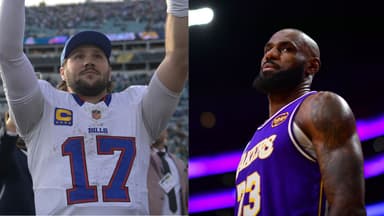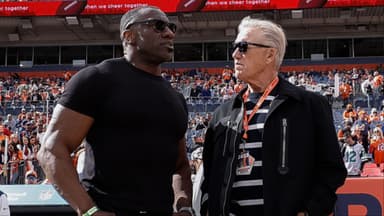Peyton Manning’s name is ever-present in discussions about all-time great quarterbacks, yet he doesn’t receive sufficient recognition. Despite all the records, MVP titles, and Super Bowl wins, his greatness has sometimes been downplayed in favor of flashier players or cleaner postseason resumes.
Advertisement
But when you ask the people who coached him, especially the ones who have seen the daily grind up close, Manning gets his due. Tom Moore is one such person. Moore, a four-time Super Bowl champion and one of the most respected offensive minds in football, worked with Manning during his prime years in Indianapolis.
Moore spoke with Jeffrey Gorman on the Colts’ YouTube channel and offered a perspective that cut through the noise. To explain what made Peyton Manning different, he reached for a quote from another Hall of Famer.
“John Elway had a quote, and I think it’s true: to be great, you’ve got to be good every day,” Moore said. “That was Peyton. Peyton was good every day. He wouldn’t allow himself to have a bad day.”
According to Moore, that daily consistency was the basis of Manning’s success. It wasn’t just about game day. It was about meetings, film, and practice — every moment accounted for. And his high standard wasn’t just self-imposed; it raised the bar for everyone around him.
“He counted on us. It was our responsibility to have answers,” Moore added. “Everything with Peyton was about, ‘What do we do if they do this?’ He made you a better coach because of that.”
That relentless preparation had ripple effects throughout the organization. Coaches and players didn’t want to let him down because they knew how locked in he was. “He made everybody in the building better because they knew how hard he worked. You didn’t want to let him down,” he said.
The former Colts coach then recalled a specific moment — a playoff slugfest against the Ravens. The Colts didn’t score a single touchdown, relying on five Adam Vinatieri field goals to pull out a 15-6 win in 2007. But even then, Manning’s command of the game was undeniable.
“Ray Lewis came up after the game and said, ‘Every time we did something, Peyton had an answer. As a coach, that makes you feel good because you gave him a chance. And when you’ve got someone special like Peyton… that’s what it’s all about.”
Peyton Manning may not have been the fastest, flashiest, or most naturally gifted quarterback to ever play, but he might’ve been the most prepared. The cold weather narrative? Overblown. His 14–13 playoff record? Underrated. The lack of mobility? Irrelevant.
Manning didn’t beat teams with speed or improv — he beat them pre-snap, with memory, timing, and complete control. He was a technician. A strategist. A film-room addict who lived to find the crack in your defense before the ball was even snapped. And what proves this?
Two Super Bowl wins, five MVPs, over 71,000 passing yards, and 539 career touchdowns across two franchises, and even a second neck. That’s not luck. That’s legacy.
“It’s about players, ain’t about coaches. It’s not about Tom Moore,” he said. “If I hadn’t let Peyton do all the things he did, they would’ve arrested me for malpractice.”
Simply put, that’s what the greats do — they make you better. And no one defines that better than Peyton Manning, for he wasn’t built like the prototypical modern quarterback, but created a career that continues to define the position.







